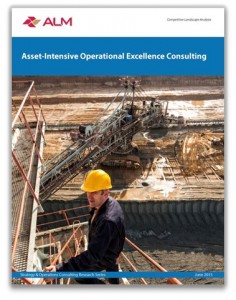
Deloitte recently announced its acquisition of the Canada-based asset reliability engineering firm, Asset Performance Group (APG). APG is one of a number of specialist engineering consultancies that focuses on helping clients in asset-intensive sectors such as oil and gas to deploy reliability and maintenance techniques to improve asset availability, optimize maintenance expense, and minimize safety risks. The end-game for providers like APG is to shift companies away from the traditional run-to-failure operating mode towards a more balanced mix of corrective, preventative, and condition-based maintenance. Underlying this approach is the imperative to bring together the often siloed engineering and maintenance functions to optimize asset performance and reliability over the full lifecycle from design and build through decommissioning.
Market demand for consulting on asset performance and reliability is experiencing a secular uptick in the wake of the global financial crisis, as my colleague, Naima Hoque, and I detail in our recent report, Asset-Intensive Operations Excellence Consulting. Prior to the crisis, companies were more likely to invest in new capital assets to meet new demand and rely on the relatively blunt instruments of corrective and preventative maintenance for existing assets. Post-crisis, however, companies in asset-intensive sectors are increasingly using consultants to get more out of existing assets and avoid new capital expenditures amid declining commodity prices and weak growth. The need is significant. In the U.S. private non-farm business sector, for example, the contribution of capital intensity to productivity growth has been negative or nil since 2010, according to the U.S. Bureau of Labor Statistics. The promulgation in January 2015 of an international standard for asset management, ISO 55000, is further helping to raise awareness of the importance of asset productivity by introducing a management system to a traditionally technical discipline.
To continue reading, become an ALM digital reader
Benefits include:
- Authoritative and broad coverage of the business of consulting
- Industry-leading awards programs like Best Firms to Work For, Global Leades and Rising Stars
- An informative newsletter that goes into the trends shaping the industry
- Critical coverage of the employee benefits and financial advisory markets on our other ALM sites, BenefitsPRO and ThinkAdvisor
Already have an account? Sign In Now

